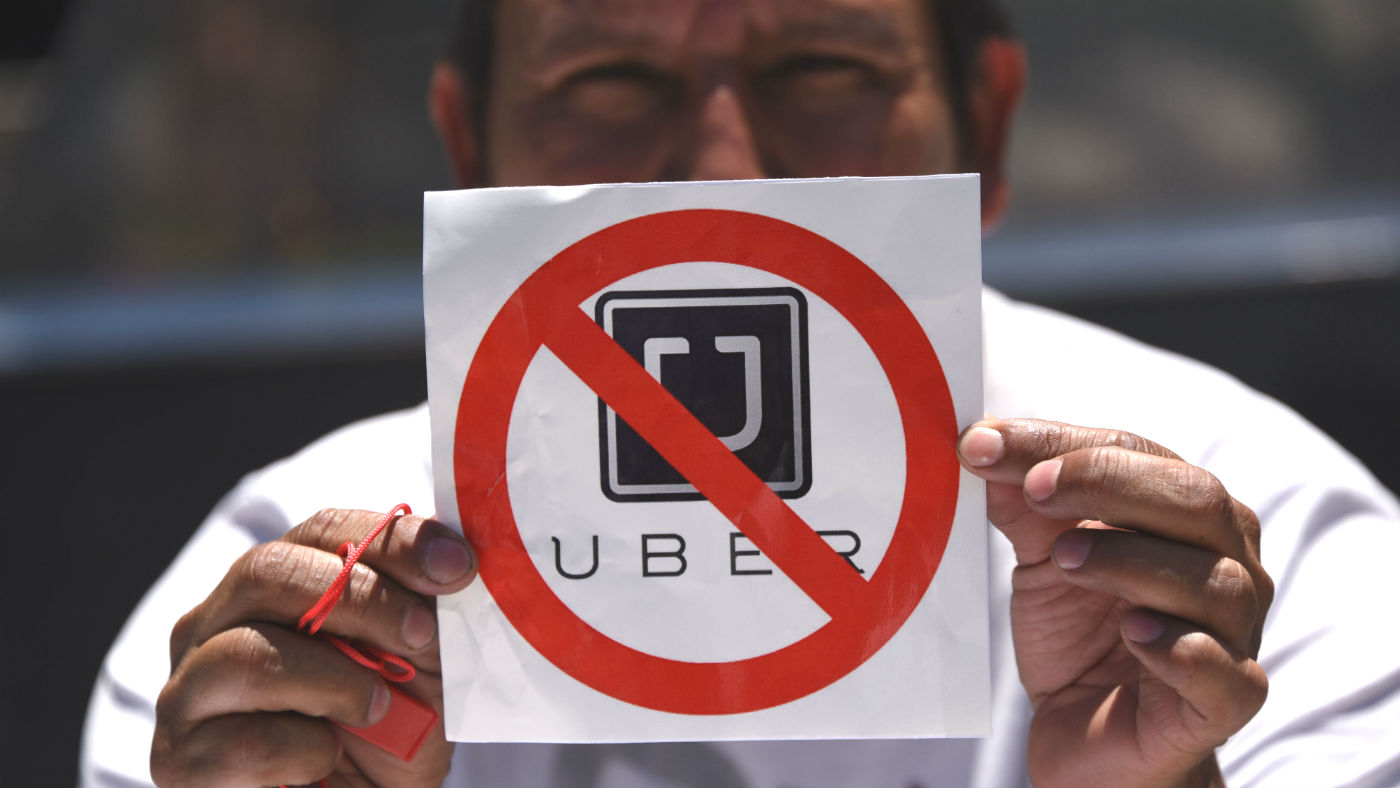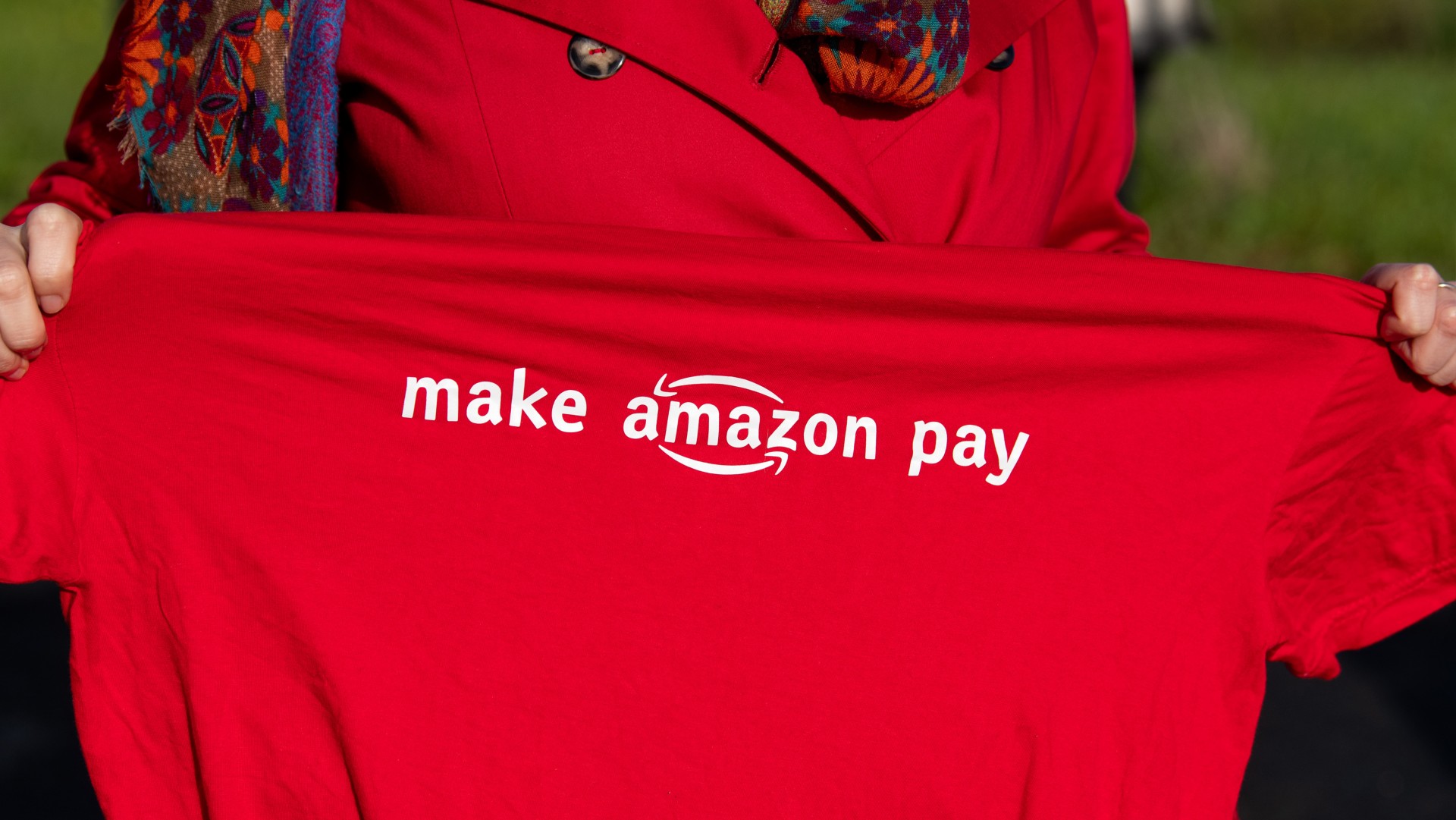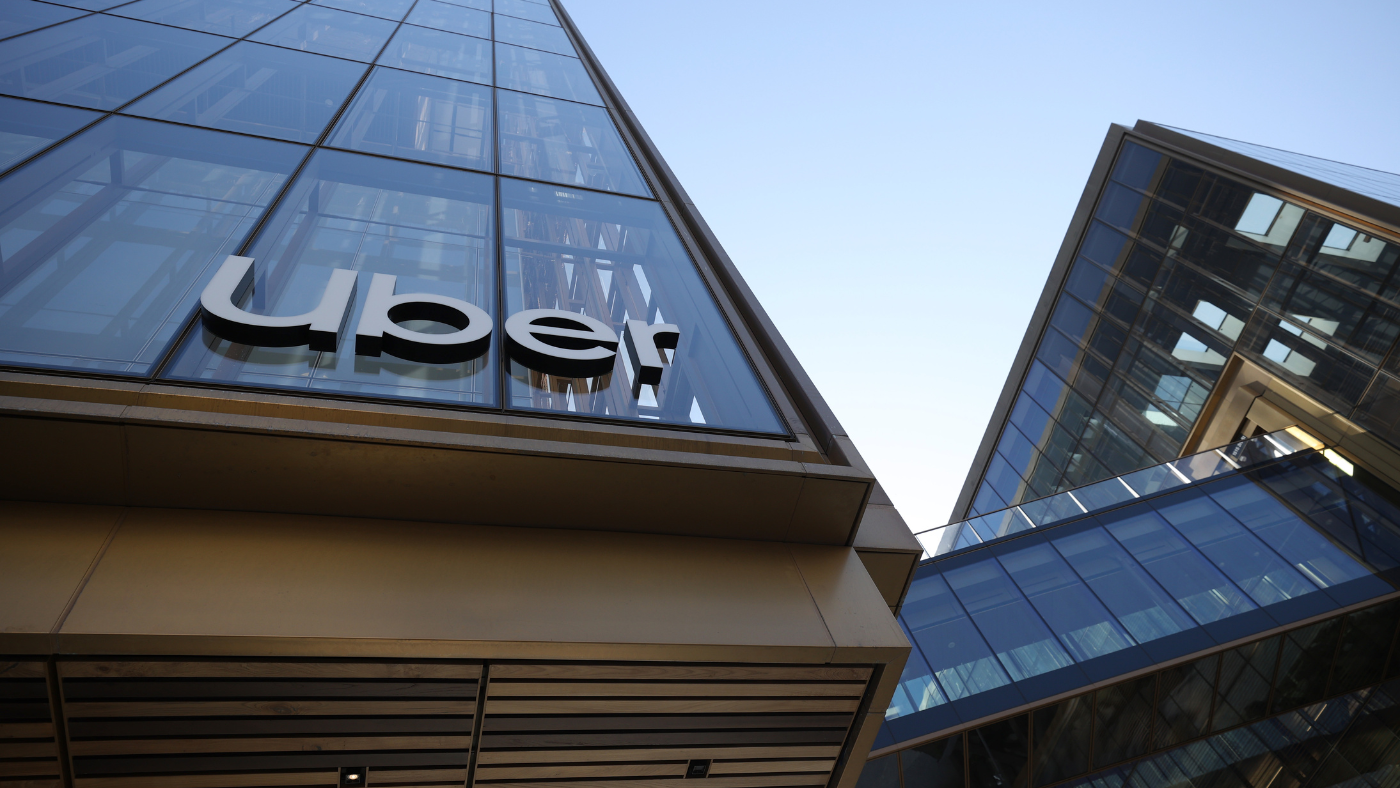Uber drivers stage global strike ahead of IPO
Walk-out timed to coincide with Uber’s much-anticipated $100bn stock listing on Friday

A free daily email with the biggest news stories of the day – and the best features from TheWeek.com
You are now subscribed
Your newsletter sign-up was successful
Drivers for the world’s biggest ride-sharing app have staged a mass strike in cities around the world, protesting for higher pay, better benefits and more say in the company’s policies.
Uber drivers in the UK were joined by their counterparts in the US, Australia and South America in striking over pay and work conditions.
CNN reported that “in addition to powering off their apps, drivers will hold rallies held in strategic locations such as outside local Uber offices”. In the UK, protests took place outside Uber offices in London, Birmingham, Nottingham and Glasgow.
The Week
Escape your echo chamber. Get the facts behind the news, plus analysis from multiple perspectives.

Sign up for The Week's Free Newsletters
From our morning news briefing to a weekly Good News Newsletter, get the best of The Week delivered directly to your inbox.
From our morning news briefing to a weekly Good News Newsletter, get the best of The Week delivered directly to your inbox.
The strike is timed to coincide with Uber’s much-anticipated listing on the New York Stock Exchange tomorrow, which could see the 10-year-old Silicon Valley start-up valued at more than $100bn.
The initial public offering (IPO), which follows rival Lyft’s $25bn listing in March, will make millions for its top executives and investors, while many drivers remain stuck on minimum wages.
Analysis by UK unions suggests Uber drivers in the UK earn an average £5 an hour, well below the legal minimum wage of £8.21 for over 25s. “They can work as much as 30 hours a week before breaking even,” says The Guardian.
“Uber’s flotation is shaping up to be an unprecedented international orgy of greed as investors cash in on one of the most abusive business models ever to emerge from Silicon Valley,” said James Farrar, chair of the United Private Hire Drivers branch of the IWGB union.
A free daily email with the biggest news stories of the day – and the best features from TheWeek.com
“It is the drivers who have created this extraordinary wealth but they continue to be denied even the most basic workplace rights,” he added.
The BBC reports that unions in the UK “would like to cut the commission going to the companies”. The IWGB is arguing for commissions to be reduced from 25% to 15%, fares to be increased to £2 a mile from about £1.25 and recognition of “worker” employment status for drivers so they are guaranteed to be paid the minimum wage and to receive holiday pay and other benefits.
“It’s not the first time workers from the ride-hailing app have gone on strike, having staged numerous protests over the long-running argument over the status of drivers,” says HuffPost UK.
Last year, Uber lost an appeal against a ruling that its drivers should be treated as workers rather than self-employed.
Uber has long claimed “drivers are at the heart of our service” but according to the Guardian the company’s own prospectus, recently filed with the US Securities and Exchange Commission, “admits that being forced to reclassify drivers as employees or workers would ‘require us to fundamentally change our business model’ and have a big impact on the firm’s finances”.
“The strike itself won’t be enough to force the companies to change their behaviour,” says David Leonhardt in the New York Times. “Still, it’s important, because it will show whether the drivers — and the riding public — have the ability to affect the companies’ business. If they do, future strikes and protests will be feasible”.
“In the long term, the drivers’ best hope for winning decent pay and working conditions is to win the battle for public opinion,” he writes.
“Organisers aren’t just targeting corporate leaders: They’re looking to policymakers, who could hold those companies accountable for improving conditions,” says CityLab’s Sarah Holder.
-
 How the FCC’s ‘equal time’ rule works
How the FCC’s ‘equal time’ rule worksIn the Spotlight The law is at the heart of the Colbert-CBS conflict
-
 What is the endgame in the DHS shutdown?
What is the endgame in the DHS shutdown?Today’s Big Question Democrats want to rein in ICE’s immigration crackdown
-
 ‘Poor time management isn’t just an inconvenience’
‘Poor time management isn’t just an inconvenience’Instant Opinion Opinion, comment and editorials of the day
-
 How Amazon’s first UK strike could be a sign of things to come
How Amazon’s first UK strike could be a sign of things to comefeature Big Tech is facing increasing pressure from unions as cost-of-living crisis fuels nationwide unrest
-
 Uber files: what ‘unprecedented leak’ revealed
Uber files: what ‘unprecedented leak’ revealedSpeed Read Investigation exposes extent of government lobbying by Silicon Valley start-up between 2013 and 2017
-
 Labour shortages: the ‘most urgent problem’ facing the UK economy right now
Labour shortages: the ‘most urgent problem’ facing the UK economy right nowSpeed Read Britain is currently in the grip of an ‘employment crisis’
-
 Will the energy war hurt Europe more than Russia?
Will the energy war hurt Europe more than Russia?Speed Read European Commission proposes a total ban on Russian oil
-
 Will Elon Musk manage to take over Twitter?
Will Elon Musk manage to take over Twitter?Speed Read The world’s richest man has launched a hostile takeover bid worth $43bn
-
 Shoppers urged not to buy into dodgy Black Friday deals
Shoppers urged not to buy into dodgy Black Friday dealsSpeed Read Consumer watchdog says better prices can be had on most of the so-called bargain offers
-
 Ryanair: readying for departure from London
Ryanair: readying for departure from LondonSpeed Read Plans to delist Ryanair from the London Stock Exchange could spell ‘another blow’ to the ‘dwindling’ London market
-
 Out of fashion: Asos ‘curse’ has struck again
Out of fashion: Asos ‘curse’ has struck againSpeed Read Share price tumbles following the departure of CEO Nick Beighton